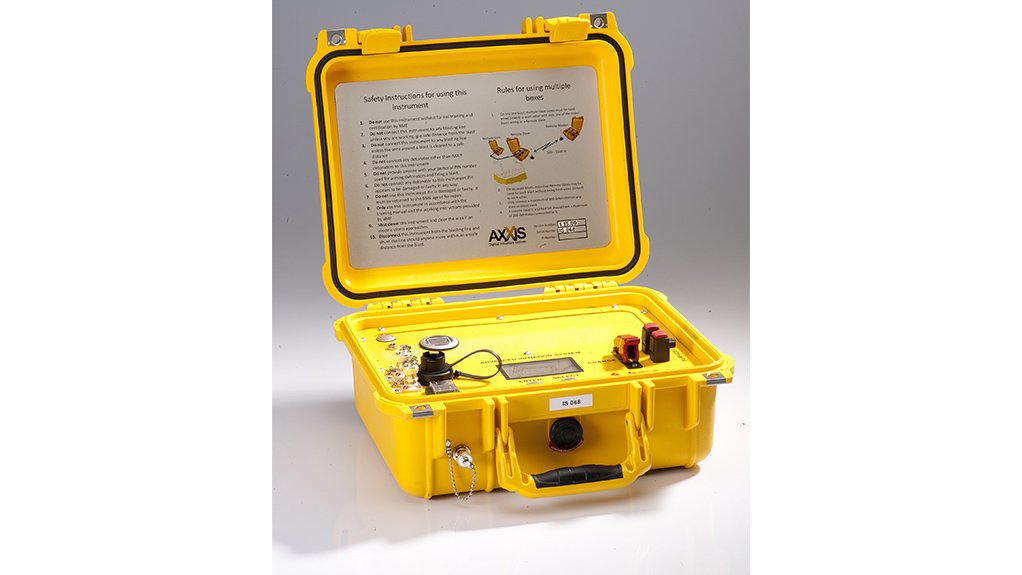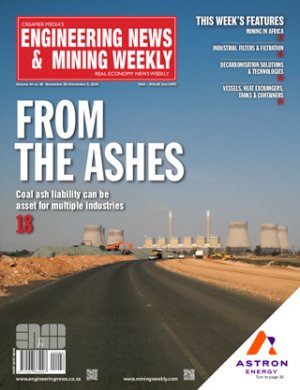Many of Africa’s mineral deposits can deliver good yields to investors, even after the additional costs that are often incurred when operating in regions without sufficient infrastructure.
This is especially pertinent in countries where governments create a conducive environment for investment. In these cases, mining on the continent continues to present attractive opportunities, says explosives and blasting company BME Southern African operations GM Albie Visser.
Mining companies will rely increasingly on digital processes to ensure that normal operations can continue safely and in compliance with key regulations such as social distancing. At the same time, the momentum towards achieving higher efficiencies must continue. This means, for instance, reducing the cost of mining though safer and better blasting.
BME has invested heavily in digitalisation across its service offering, says Visser, adding that, “our technology-driven products and services include our blast planning software BLASTMAP, and the well-established AXXIS electronic detonation system”.
“Our Blasting Guide is a mobile application for Android devices, which can rapidly calculate and check blast designs.”
All these systems, he adds, make for greater efficiency along the mining value chain, while facilitating social distancing, remote working and off-site technical support for customers.
Additionally, he notes that even before the pandemic, the global mining sector was actively seeking ways to improve its productivity – and mines in Africa were no exception. While this has been done to a large extent by limiting capital expenditure and employment, there is growing recognition that future productivity growth will come from technological innovation – particularly in automation, digitalisation and process optimisation.
Covid-19, Visser explains, has highlighted the need for remote working capacity, minimal human touchpoints in the value chain, and real-time reporting for better decision-making. Mining companies are therefore relying on their technology partners to deliver products and services that support these efforts.
The whole commodity cycle has been affected by Covid-19, in terms of supply and demand. As a result, the recovery from lockdown differed across commodities and regions. For some mines, there was a focus on getting back to previous production levels, while others were more cautious and cut back on targets. Production rates in some commodities remain below their pre-pandemic levels.
“The state of the global economy has been an important external factor, leading to weak commodity prices that weighed on mining pre-Covid. However, several commodities have recovered well in recent months.”
Further, it is likely that most countries will retain a cautious approach to dealing with the risk of Covid-19 infections. Regulations to prevent the spread of infection will probably not be removed for some time, meaning that access to workplaces – including mines – may remain difficult. As such, the use of digital technologies to sustain links between mines and suppliers will be vital.
“More broadly, African countries will continue to regulate mining in a way that promotes a positive local impact – including the promotion of local procurement and employment,” says Visser, adding that suppliers will need to work closely with mining customers to support training and development of local expertise.
“Our approach to implementing projects in Africa is always to work in line with our corporate protocols and mission; this means observing health and safety as a priority, which has been even more important during the Covid-19 pandemic.
“We apply industry best practice wherever we work, which invariably aligns with our mining customers’ codes of practice and with the national regulations of the host country,” he asserts.
Although the ease of doing business in Africa varies, it is generally dependent on a government’s commitment to the rule of law and its ability to effectively administer and enforce its economic regulations.
Mining will remain an important sector for Africa’s governments as it can be a strong generator of State revenue and foreign exchange. Perhaps most significantly, however, mining can stimulate local procurement where there is capacity for supply within the host country – and this is vital for the diversification of Africa’s economy, affirms Visser.
Edited by: Nadine James
Features Deputy Editor
EMAIL THIS ARTICLE SAVE THIS ARTICLE
ARTICLE ENQUIRY
To subscribe email subscriptions@creamermedia.co.za or click here
To advertise email advertising@creamermedia.co.za or click here















